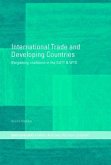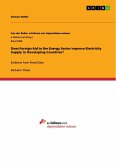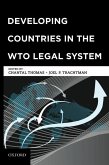The Agreement on Trade Related Aspects of Intellectual Property Rights (TRIPS Agreement 1995) has been a very controversial treaty to come out of the Uruguay Round. The Agreement aims to implement common standards for many forms of intellectual property rights. The Agreement also permits countries to adopt more extensive rights than what are prescribed in the TRIPS Agreement thereby creating two divergent streams in the functioning of this agreement as developed countries have proceeded to enhance intellectual property rights whereas developing countries have been struggling to dilute those rights or to hold them static. A major criticism of this treaty has been the marginalization of developing countries in international treaty negotiations. This book traces various developments related to the functioning of the TRIPS Agreement involving the interaction between developed and developing countries. The critical issues discussed include: the use of compulsory licensing; the local working; parallel imports; the use of competition policy to deal with intellectual property monopoly; access to medicines in countries not having sufficient manufacturing capacity. In addition, the book discusses the use of the dispute settlement system of the World Trade Organization to solve the conflicts resulting from the implementation of various provisions of the TRIPS Agreement.
Bitte wählen Sie Ihr Anliegen aus.
Rechnungen
Retourenschein anfordern
Bestellstatus
Storno








